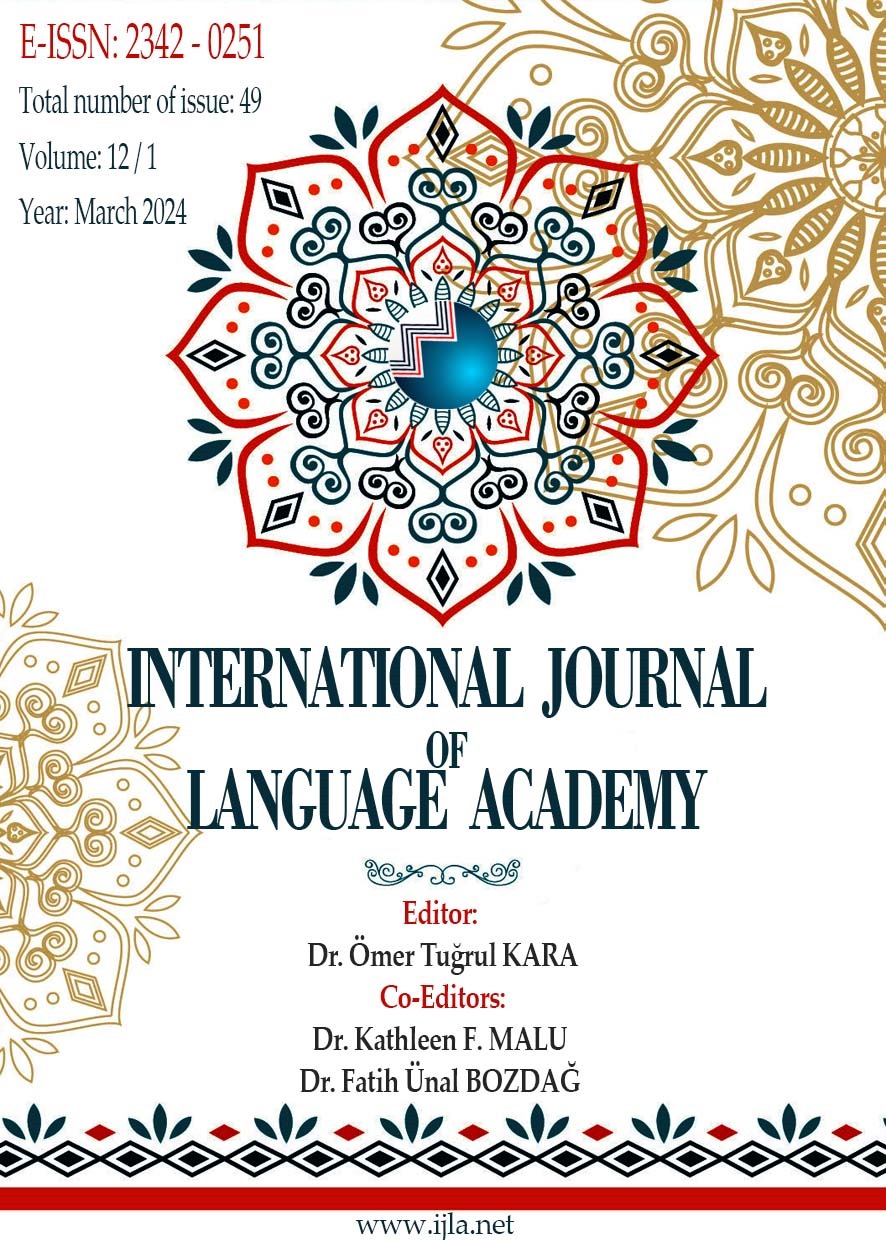ÇEVİRİ TEKNOLOJİLERİ BAĞLAMINDA SKOPOS KURAMININ YENİDEN YORUMLANMASI VE TRANSLATORSCAFE WEB SİTESİ İNCELEMESİ
Author :
Abstract
Günümüzde küreselleşmeyle birlikte kültürlerarası ilişkiler artmış ve teknoloji çeviri de dahil olmak üzere hayatın birçok alanına önemli ölçüde etki etmiştir. Çeviriyi etkileyen dilsel, kültürel ve sosyal süreçlerin ardından yaşanan teknolojik dönüşümler çeviri sürecini de etkilemiştir. Çeviri teknolojilerinin hızla gelişmesi ve küreselleşen çeviri endüstrisi ile çok sayıda çeviri yazılımı ve çeviriye yardımcı bilgisayar destekli araçlar ortaya çıkmıştır. Özellikle teknolojik gelişmeler çeviri kuramları çerçevesinde ele alındığında, Skopos ve Çeviri Eylemi kuramı gibi işlevsel kuramlarla çeviride kullanılan teknolojik araçların önem kazanmaya başladığı görülecektir. Diğer kuramlardan farklı olarak bu kuramlar erek odaklıdır ve çevirinin erek kültürün beklentileri doğrultusunda yapılması gerektiğini vurgulamaktadır. Teknolojiye doğrudan değinmese de günümüz koşullarında tekrar ele alındığında aslında bu kuramlar, günümüzdeki teknolojik araçlarla gerçekleşen çeviri sürecini dolaylı olarak da olsa ele alan uygun kuramlardır. Bu bağlamda çalışmada çeviribilim araştırmalarında teknolojinin yeri ele alınacak, daha sonra ise işlevsel kuramlardan biri olan Skopos kuramı çeviri teknolojileri bağlamında yeniden değerlendirilecek ve bu kuramın günümüzün popüler çeviri platformlarından biri olan TranslatorsCafe web sitesi örnekleminde uygulanabilir yönleri çevirmen, çeviri amacı ve eylemi açısından incelenecektir. Bu doğrultuda çalışmada nitel araştırma yöntemlerinden biri olan doküman inceleme yöntemine başvurulmuş olup veriyi analiz etme sürecinde betimsel analiz gerçekleştirilmiştir. Araştırma sonucunda Skopos kuramı günümüz koşullarında ele alındığında dolaylı olarak çeviri teknolojilerine değinildiği anlaşılmaktadır. Ayrıca TranslatorsCafe web sitesindeki çeviri iş akış süreçleri Skopos kuramının çevirmen, çeviri amacı ve eylemine dair genel söylemiyle açıklanabilmektedir.
Keywords
Abstract
Nowadays, intercultural relations have increased with globalization and technology has had a significant impact on many aspects of life, including translation. Technological turns, in the aftermath of linguistic, cultural, and social processes that influence translation, have also had an impact on the translation process. With the rapid development of translation technologies and the globalizing translation industry, many translation software and computer-aided tools have emerged to assist translation. Especially when technological developments are considered within the framework of translation theories, it will be seen that the technological tools used in translation have begun to gain importance with functional theories such as Skopos and Translation Action theory. Unlike other theories, these theories are target oriented and emphasize that translation should be done in line with the expectations of the target culture. Although they do not directly address technology, when reconsidered in today's conditions, they are appropriate theories indirectly addressing the translation process done with today's technological tools. Thus, in this study, the place of technology in translation studies research will be discussed, then Skopos theory will be re-evaluated in the context of translation technologies, and the applicable aspects of this theory will be examined in terms of the translator, the purpose and action of translation in the TranslatorsCafe website sample, one of today's popular translation platforms. In this regard, the document analysis method, one of the qualitative research methods, was used in the study and descriptive analysis was carried out in the process of analysing the data. As a result of the research, it is understood that when Skopos theory is considered in today's conditions, it indirectly refers to translation technologies. In addition, the translation workflow processes on the TranslatorsCafe website can be explained with the general discourse of Skopos theory regarding the translator, the purpose and action of translation.





